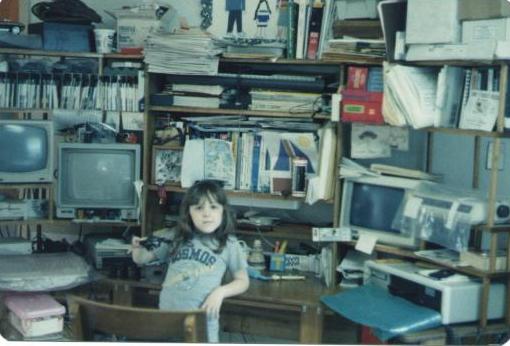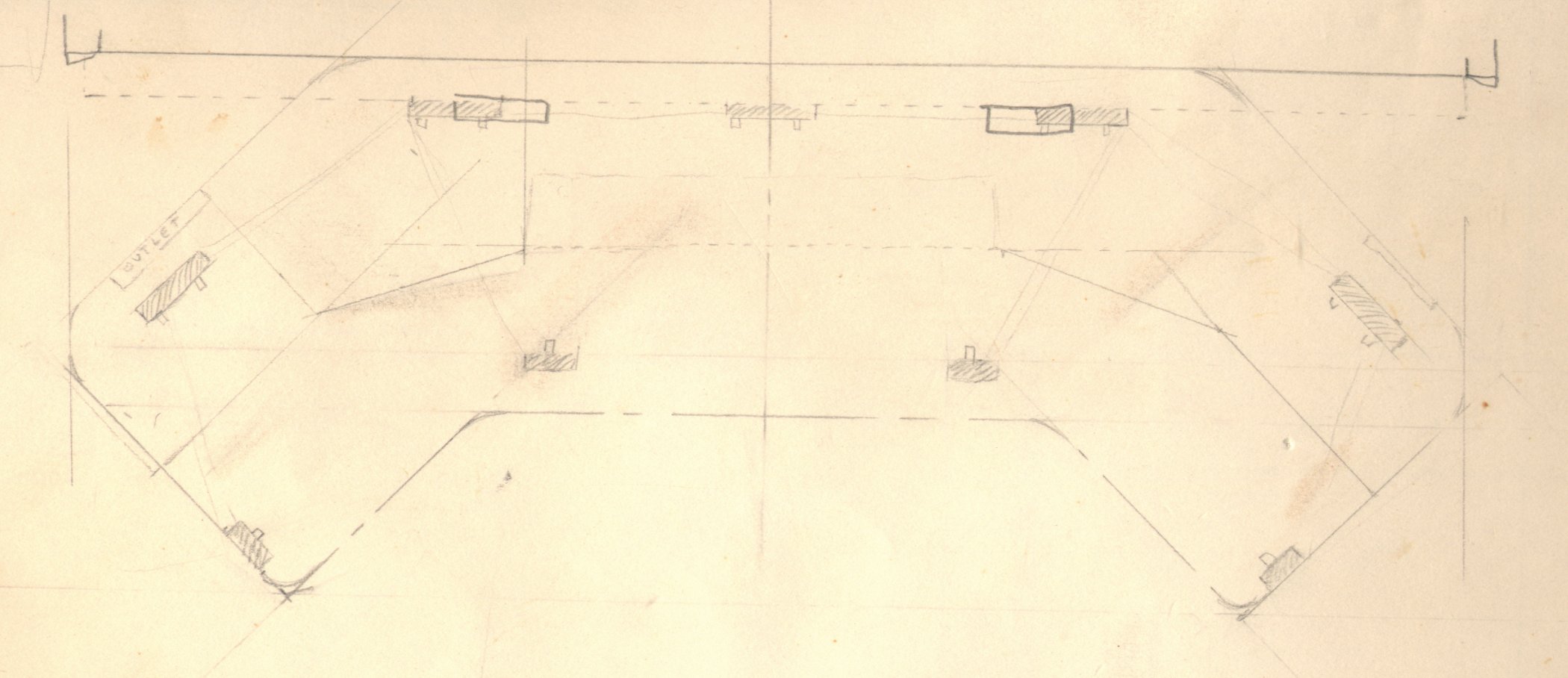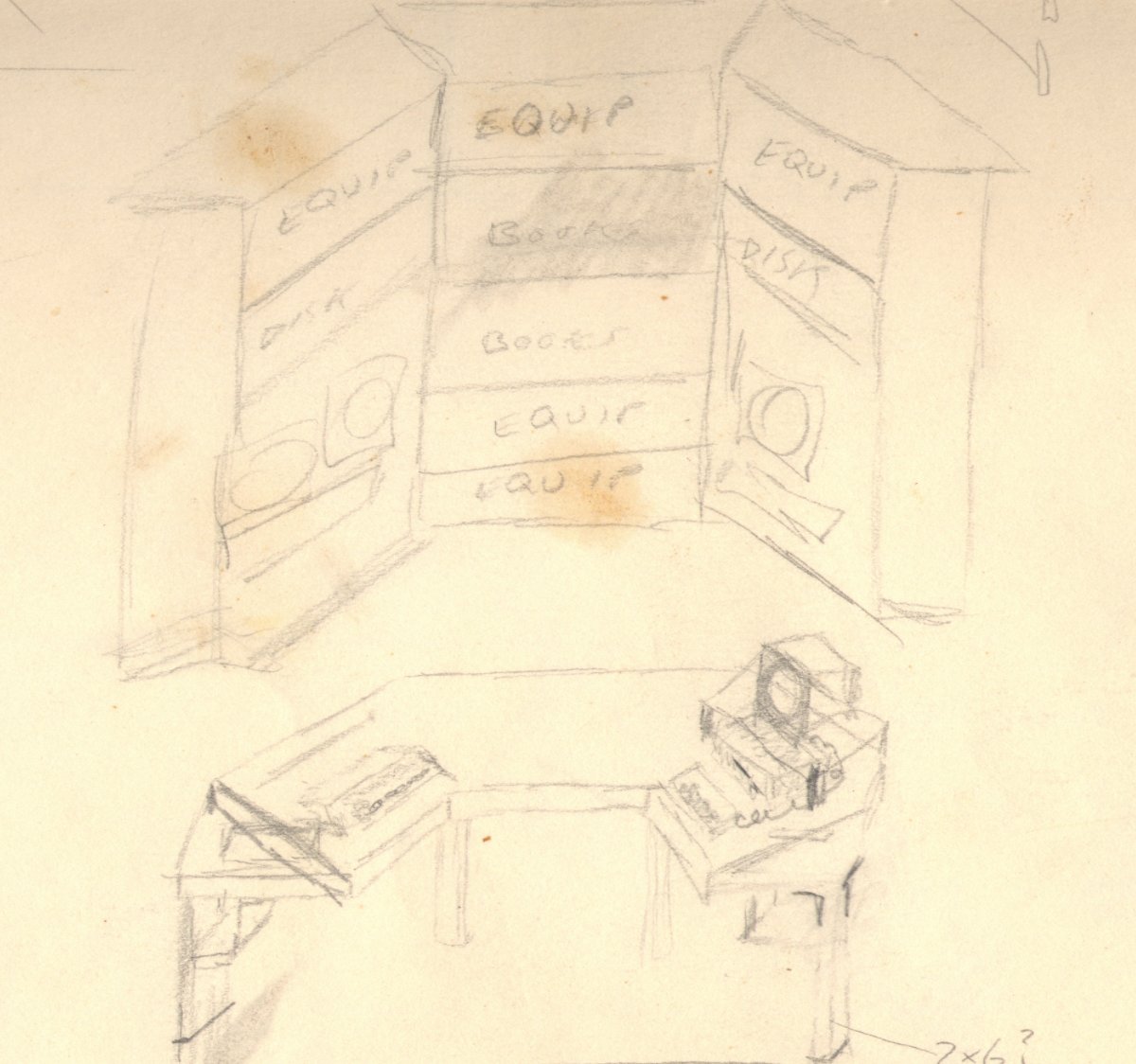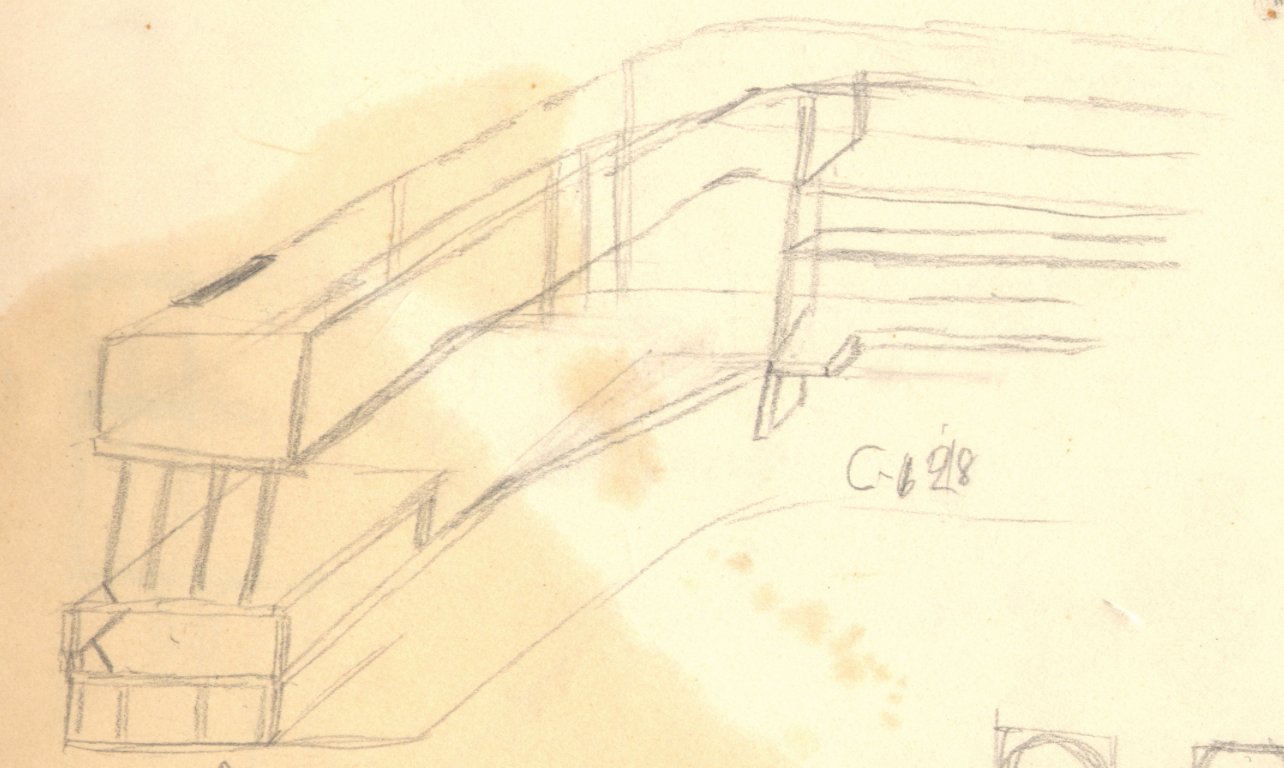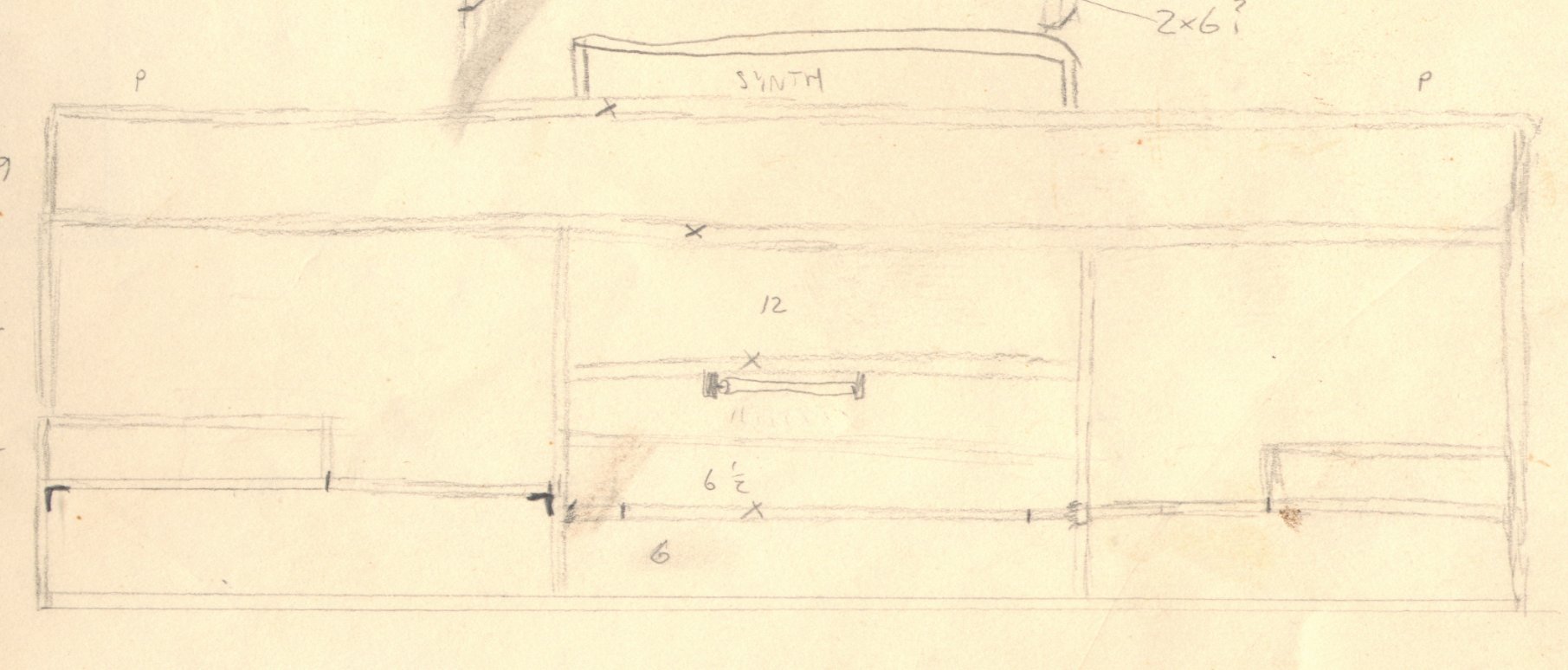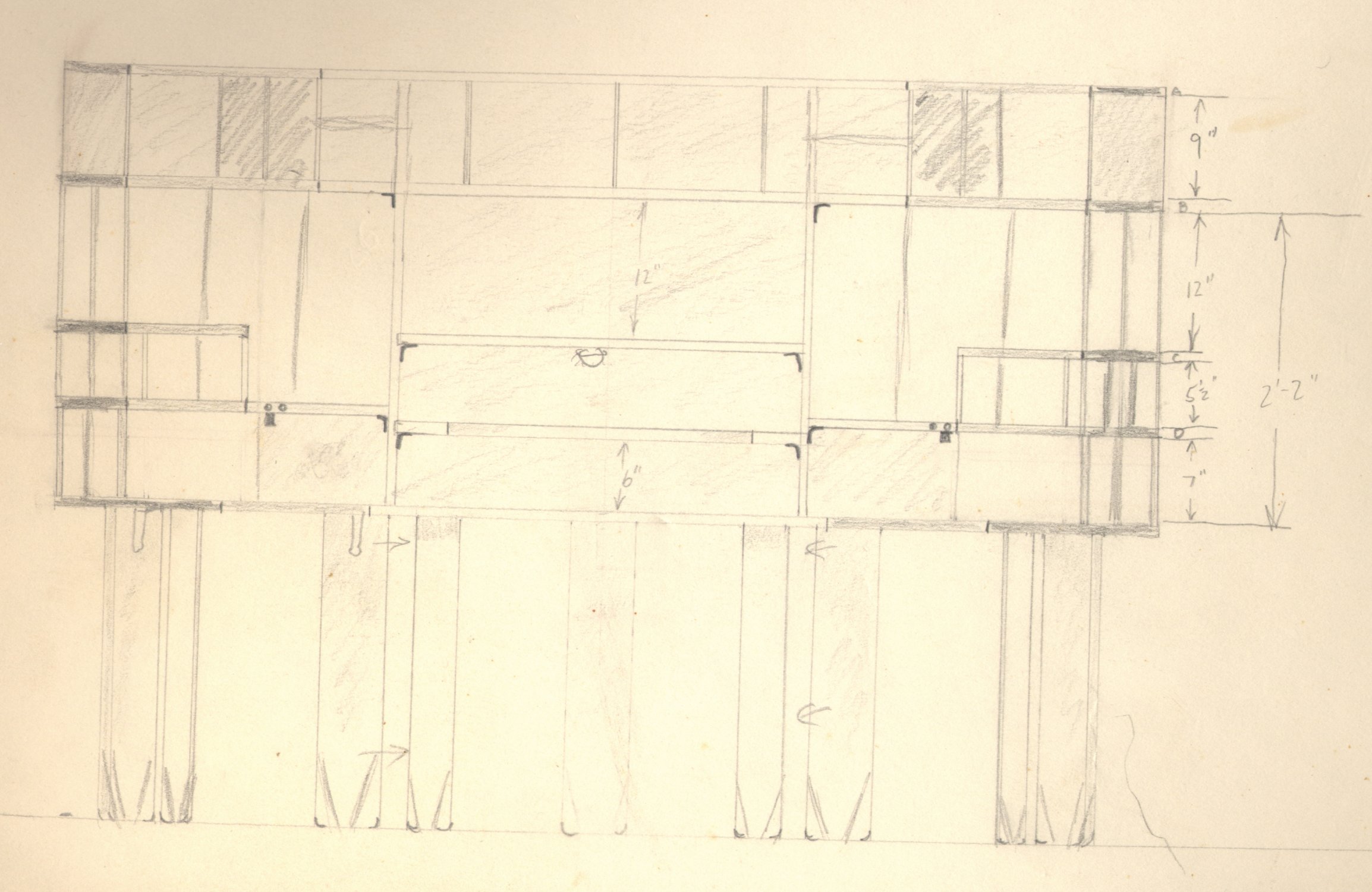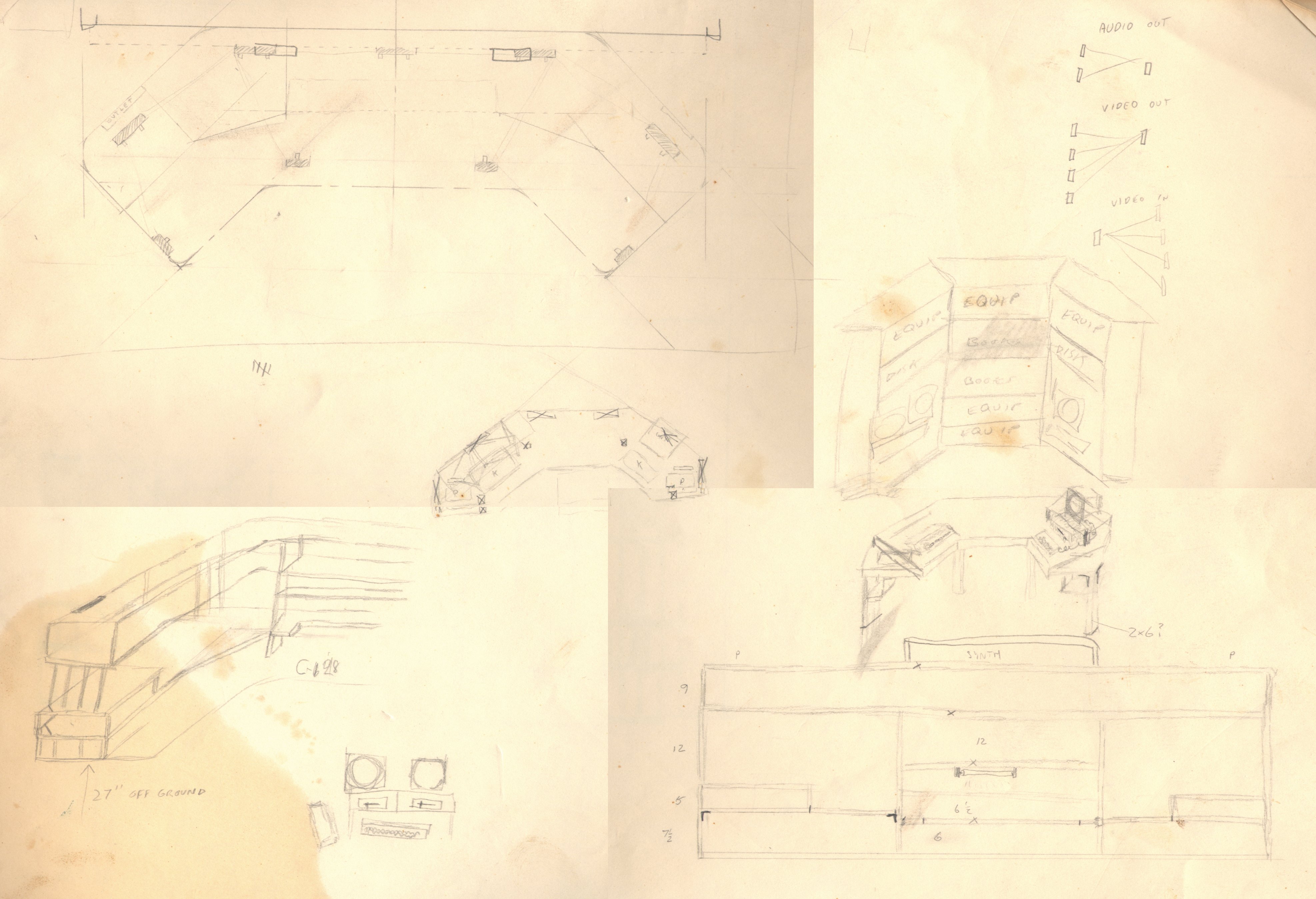Specifications
Made of 3/4" plywood (pine), 2" x 4" pine studs and 1" pine
boards, stained a walnut color. Eight feet long, three feet wide and
over 5 feet high.
Story
Somewhat sadly, this desk no longer exists. It served its purpose
very well and was not worth moving to Texas when I moved. Despite the
low-grade materials, and the rough workmanship, this desk served as
the "command center" from about 1985 until 1997. In retrospect, this
shape for the design was probably roughly inspired by the fold-out G.I. Joe Headquarters I used to
play with when I was younger.
At right is the only known picture of this desk as it existined
relatively early in its lifetime in Kings Park, NY. You can see from
the picture that it was usually filled to capacity, and the non-bulky
design makes the desk even hard to make out from the clutter. You see
the Commodore setup on the left (dual monitors back in 1985...how
about that?). The Intel 8088 machine is on the right.
It was designed specially to be a multipurpose, dual computer
desk. The requirements was to have my Commodore 64 on one end, my
Intel 8088 machine on the other, and a regular desk in between. Plus,
plenty of shelf space, sturdy but not clunky. It had a wrap around
design, and I used lots of short 1" x 1" pieces as between shelf
supports rather than solid pieces of wood.
This was made with only a circular saw, belt sander, oscillating
sander and a borrowed router. I constructed it in the kitchen (and
sometimes patio) of a very small house.
This was made with only a circular saw, belt sander, oscillating
sander and a borrowed router. I constructed it in the kitchen (and
sometimes patio) of a very small house.
Sketches
I do happen to have located the original sketch sheet for the
design of this desk. See the images below and click to enlarge..
Miscellaneous Notes/Thoughts
- Biggest lesson was that not sanding between coats of polyurethane is a really bad decision. I had no appreciation for just how much the grain could raise, and what was a reasonable smooth surface on my last sanding pass wound up being a raspy, un-dustable surface.
- The original design resulting in a slight wobble from front to back. I retrofitted some metal support brackets between the legs and underside of the top.
- The desk featured a built-in light about the center desk, and underside mounted powerstrips at both ends.
- This was really my first woodworking project since I took wood shop in middle school (the Tressle Table project).
 Cassandra.org
Cassandra.org
